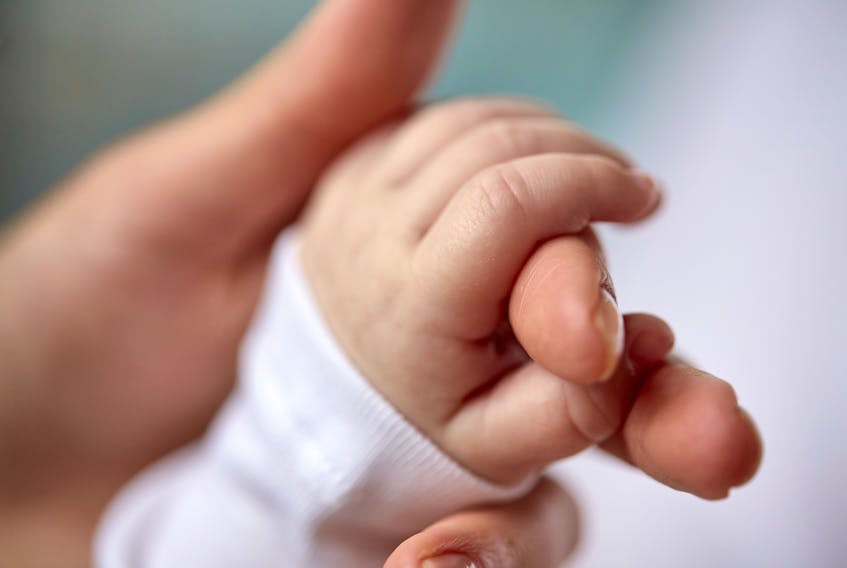The P.E.I. legislature spoke loudly and clearly to appoint an independent child and youth advocate in this province. But just this past week, I was neither notified, briefed nor consulted in advance of the government announcing a major policy decision impacting the rights, interests and well-being of high-risk newborn infants. When the role and function of my office are dismissed, children and youth are, in turn, dismissed.
Children and youth are human rights holders and there is a human rights instrument, ratified by Canada in 1991, called the United Nations Convention on the Rights of the Child. This child-centered human rights instrument is necessary because children are a unique and vulnerable population with evolving capacity; children have a limited voice in government decision-making; children do not have the same ability as adults to know and assert their rights; children’s rights can conflict with and be treated as subordinate to adult rights; and, there is virtually no such thing as a child neutral law or policy – every area of government policy affects children to some degree.
As an independent officer of the P.E.I. legislative assembly, pursuant to the P.E.I. Child and Youth Advocate Act, it is my responsibility to promote and protect the rights of all P.E.I. children and youth and provide public oversight of government funded programs and services to children and youth. Similar to the auditor general, I do not report to government. I report to the legislative assembly and public through the Speaker of the P.E.I. legislature. I am not simply a “valued stakeholder”, as I was described in a generic letter, dated Feb. 1, 2021, from the Department of Social Development and Housing, nor is my office “among the list of government and community partners” as quoted in an email to CBC by the province and referenced in a CBC news article dated Feb. 1, 2021.
I was approached last week by the media asking for my perspective, from the view of a child, on a story the journalist was preparing on the topic of P.E.I.’s policy decision to discontinue the practice of birth alerts. It was quite refreshing to see a member of the media who understood the importance of ensuring that a child rights lens was represented on an issue about them. This perspective is precisely the approach the United Nations Convention on the Rights of the Child upholds; that children and youth are rights bearers, that decisions made about them should include a consideration of the impacts of that decision upon them, including their health, safety, protection and best interests. Similarly, the Canadian Charter of Rights and Freedoms guarantees to children equal protection under the law without discrimination on the basis of age. In other words, children’s Charter rights are not to be taken as subordinate to adult Charter rights.
Unfortunately, I was not able to comment in an informed and well-considered manner on the topic because the government department responsible for this decision and practice did not act in a manner consistent with the spirit of the P.E.I. Child and Youth Advocate Act. In this regard, the preamble to the Child and Youth Advocate Act states that “the Government of Prince Edward Island is committed to ensuring that that the rights, interests and viewpoints of children are considered in matters affecting them.” The government response regarding the lack of consultation with my office as quoted from the article: “When we become aware that we have a historical practice in place that is not in line with the charter and privacy rights of Islanders we are not in a position to consult about these practices, we are ethically responsible to stop them… Office of the Child and Youth Advocate are among the list of government and community partners that will be receiving formal communication,” demonstrates a clear lack of understanding of the equality of Charter rights between children and adults and the role of an independent officer of the legislative assembly.
Being “independent” means I have a legislated mandate to advance positions and recommendations, without the approval or interference of the government of the day, and it means I have a responsibility to amplify the voices of children and youth and take forward positions informed by those voices and viewpoints. Where, however, a child is voiceless, such as a newborn infant, then I have an even greater responsibility to speak on behalf of those voiceless and sometimes invisible children and to ensure that all of their human rights are being respected and protected when decisions are being made about them by government. I also have the responsibility to hold government accountable, where necessary, and to challenge decisions that may compromise the rights and well-being of children in P.E.I. This is the essence of why the Office of the Child and Youth Advocate exists.
These non-communitive actions from government are not in alignment with the P.E.I. Child and Youth Act which states, s. 15 (1) “The Advocate may require a public body or community organization to provide any information in its custody or under its control … that the Advocate considers necessary to enable the Advocate to carry out responsibilities or exercise powers under this Act.” Further, that compliance is required, s. 15 (5) “A public body or community organization that is required to provide information to the Advocate under subsection (1) shall provide the information to which the Advocate is entitled.”
As Islanders, we are all advocates for children and youth. Our advocacy efforts are strengthened when we work together, collaboratively, in a non-confrontational manner. Where, however, my office is excluded from significant conversations and decision-making processes that affect children, unintended consequences may result.
As the P.E.I. Child and Youth Advocate, I have a responsibility to promote the importance of government putting children and youth at the center of its decision-making, so that their rights and views are considered in all matters impacting them. We have an opportunity to be role models when we work together – we owe this to all children and youth, so that they can realize their full potential as healthy, empowered and contributing citizens of this great province.
Marvin M. Bernstein, B.A., J.D., LL.M. (ADR), is the P.E.I. Child and Youth Advocate.









